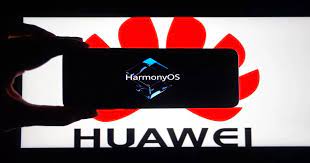Huawei Technologies launches new HarmonyOS version

Beijing: Huawei Technologies Co unveiled a new version of its self-developed operating system HarmonyOS, as the Chinese tech company speeds up efforts to cut reliance on foreign technologies and build an indigenous software ecosystem.
The move comes as Huawei announced that more than 800 million devices, including its own-brand products and devices from third-party companies, have now been equipped with HarmonyOS, up from 700 million devices five months ago, marking a significant milestone in its rapid expansion.
Yu Chengdong, CEO of Huawei’s consumer business group said at a conference in Shenzhen, Guangdong province, that the native HarmonyOS Next operating system, roughly translated as the Star River Edition, is targeted at software developers, China Daily reported on Saturday.
This version is more user-friendly, smooth, secure, intelligent and interconnected, and HarmonyOS can open up a trillion-dollar industrial new frontier, Yu said and added, a genuine operating system requires a foundation and an ecosystem. HarmonyOS has evolved into an operating system running seamlessly across a diverse array of devices.
HarmonyOS Next will no longer support Android apps or read Android code, according to Huawei.
Highlighting its commitment to promote the ecosystem of HarmonyOS, Huawei said that over 200 leading applications have accelerated their integration into the HarmonyOS ecosystem.
Major partners like Ant Group and China UnionPay, leveraging their innovation prowess and HarmonyOS’ foundational capabilities, provide software developers with efficient end-to-end tools and expedite application development.
Meanwhile, Yu said the HarmonyOS campus courses have reached 135 universities, involving 305,000 students, with 286 companies participating in HarmonyOS ecological workshops. Over 380,000 developers have obtained HarmonyOS certification.
The self-developed operating system was first unveiled as an Android alternative in August 2019, three months after the US government added Huawei to its Entity List, restricting the Chinese company’s access to crucial US technologies.
Since then, Huawei has been working hard to push for wider adoption of HarmonyOS, which is projected to surpass Apple’s iOS as the second-biggest smartphone operating system in China in 2024, according to Canadian research firm TechInsights.
Though Google’s Android and Apple’s iOS will continue to dominate the global smartphone operating system sector, Huawei’s HarmonyOS will take some ground in China, driven by the firm’s 5G smartphone comeback with the Mate 60 series, TechInsights said in a report.
Dai Wei, deputy secretary-general of the Internet Society of China, called on Chinese internet enterprises and every link in the industry chain to embrace and support the HarmonyOS ecosystem.
Zhou Hongyi, founder and chairman of Chinese cybersecurity company 360 Security Group, said multiple high-quality applications under the company will join the HarmonyOS ecosystem, promising users a smoother, more intelligent and secure experience.
Zhu Yonggang, president of Huawei’s device cloud business, said that the HarmonyOS application ecosystem is entering its second phase, and expressed hope for collaboration with more developers to accelerate the integration of diverse industries into the ecosystem.





